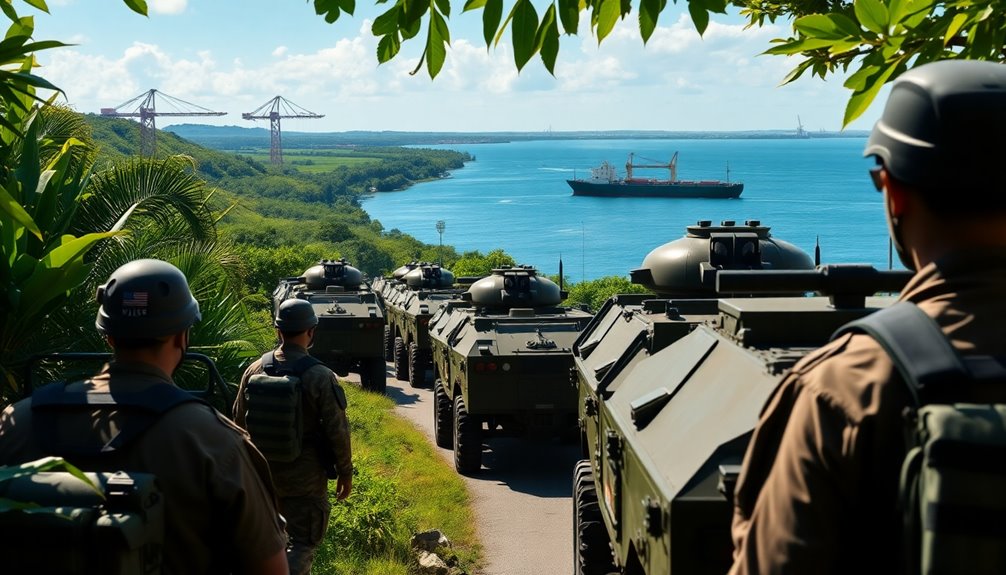
The U.S. military's presence around the Panama Canal is crucial for maintaining control over this strategic waterway, which serves as an essential artery for global trade. By ensuring a strong military foothold, you're actively contributing to national security interests. The canal plays a significant role in international shipping, making its control vital for U.S. economic stability and security. Given the importance of this route, the U.S. aims to counter any rising influence, particularly from China, which has shown increasing economic and military ambitions in the region.
The U.S. military's presence is vital for securing the Panama Canal, a key asset for global trade and national security.
Recent tensions have emerged, as the U.S. claims Panama hasn't upheld certain agreements, raising concerns about Chinese involvement in the area. As you navigate these complexities, it's clear that the U.S. Southern Command is taking the lead in planning military strategies to enhance the American presence around the canal. This involves not only military preparedness but also building cooperative relationships with Panama's military. However, if cooperation falters, the potential for military intervention remains on the table as a last resort.
Historically, the U.S. has had a strong military presence in the region, dating back to the canal's construction. Your understanding of this legacy is crucial, as the U.S. Army played a significant role in its defense until its transfer to Panama in 1999. The infrastructure built during that time was designed for military readiness, and knowing this history can help you appreciate the strategic implications of current U.S. military planning. Additionally, U.S. Southern Command is developing plans to strengthen military presence around the canal, which reflects the growing emphasis on regional security.
The ongoing geopolitical context also weighs heavily on U.S.-Panama relations. With claims of broken agreements and the specter of Chinese influence, maintaining the canal's neutrality has become increasingly important. Both nations are treaty-bound to defend this vital waterway, which highlights the legal and diplomatic challenges at play. If foreign powers attempt to seize control, it could violate international law and escalate tensions.
As you consider the broader implications, remember that the canal is more than just a shipping route—it's a linchpin for global trade and economic security. The U.S. aims to ensure that it remains firmly under American influence to protect regional stability. Your awareness of these dynamics underscores the importance of U.S. military strategies designed to secure the Panama Canal, ensuring that it continues to serve as a crucial asset in the global economy.








